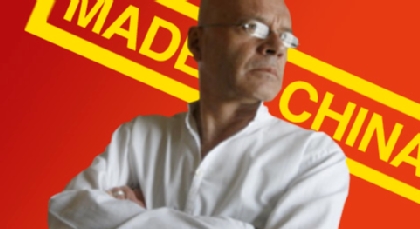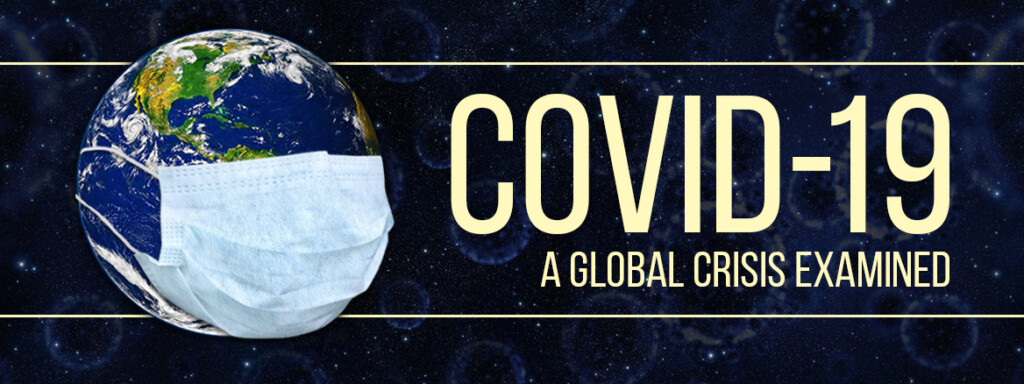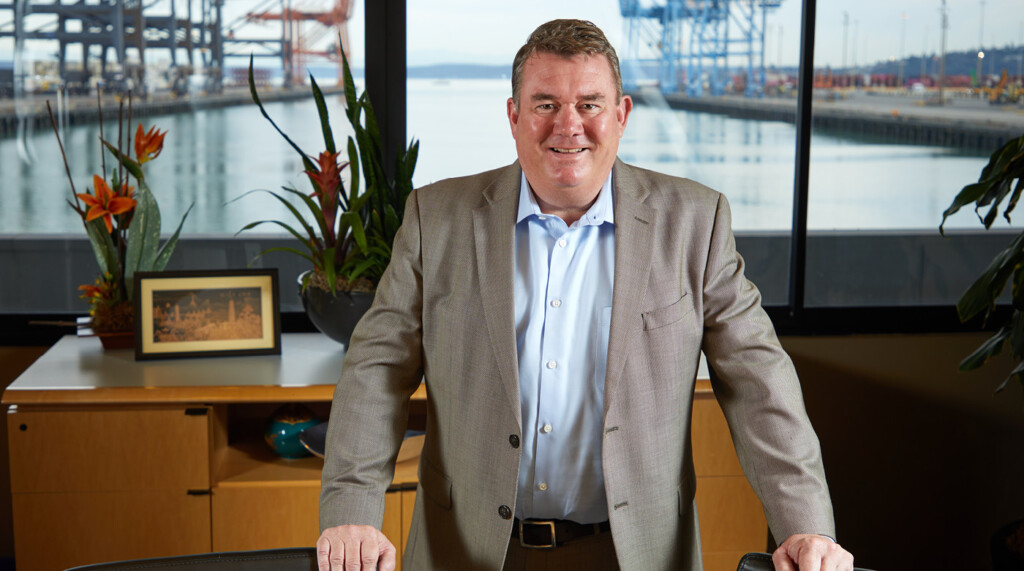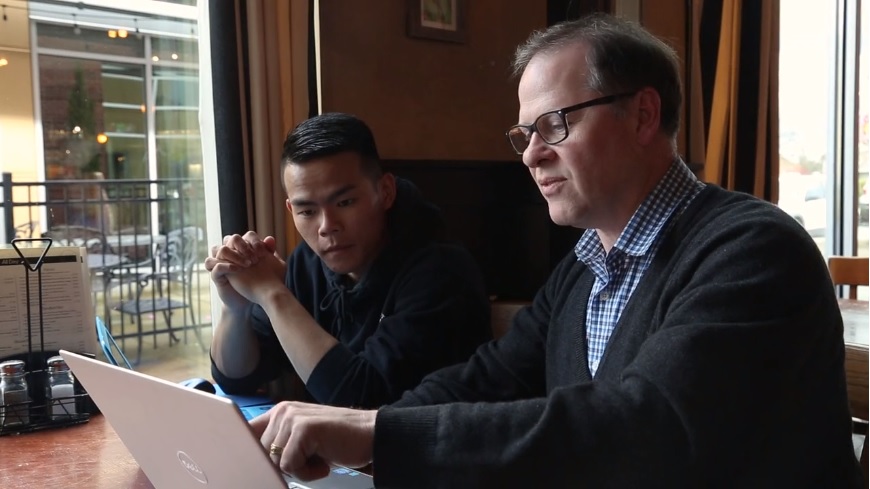Page 20 • (253 results in 0.042 seconds)
-

About two years ago, PLU professor Neva Laurie-Berry partnered with a world-class plant research center. The Donald Danforth Plant Science Center in St. Louis, Mo., sends Laurie-Berry’s BIOL 358 Plant Physiology class millet seeds with random mutations. Student teams study plants in PLU’s warm, sunny…
undergraduate students in analyzing lab-generated mutant seed populations in partnership with Danforth. Students care for the plants, recording the number of seedheads produced and any branches or unusual seedheads or leaf shapes. At the semester’s end, students collect seeds from each millet plant to mail back to Danforth, along with their findings.Expanding knowledge and opportunityThe Mutant Millets project refines Setaria viridis, a small, hardy grass that grows wild throughout North America. Otherwise
-

What will the world look like when China is calling the shots? By Barbara Clements Even by the most conservative estimates, China will overtake the United States as the world’s largest economy by 2027 and will climb to the position of world economic leader by…
. As China is already emerging as the new center of the East Asian economy (eclipsing, among others, Japan), the role of economic and cultural relevance will in our lifetimes begin to pass from Manhattan and Paris to cities like Beijing and Shanghai, the book states. Jacques contends that it is the American relationship with and attitude toward China that will determine whether the twenty-first century will be relatively peaceful or fraught with tension and instability. “America seems relatively
-

TACOMA, WASH. (Feb. 28, 2020 ) — Cece Chan’s activism awakening came in high school. As a third-generation Asian young woman, she realized Seattle Public Schools’ majority-white institution and Eurocentric curriculum had damaged her own cultural understanding due to lack of representation within textbooks or…
political science classes: “Latino Experience in America” and “Local State and Government.” Future Plans What’s next? For an upcoming film, Chan wants to investigate the training educators receive before going into the workforce. “Are they even having the conversations about race and equity to support ethnic studies?” she asks. While making changes at the classroom or district level is commendable, she hopes to work on a larger scale, changing policies and systems to incorporate more voices. After
-

Earlier this month Pacific Lutheran University announced a timely new course titled “COVID 19: A Global Crisis Examined.” Open to PLU students, alumni, faculty, staff and the public, the one-credit/no-credit online course will lead students through a reflection of the ongoing COVID-19 pandemic. Over the…
impact that the pandemic is having in many parts of Native North America by considering the significance of this present moment in light of a centuries-long history of colonialism, epidemic disease, and contemporary efforts to reclaim tribal sovereignty and control over healthcare. What do you think the alumni panel will add to the experience? There are three things the panel will add to the experience. First, like the academic expertise of my faculty colleagues, we look forward to the insights that
-

When Pacific Lutheran University alumnus Eric Johnson ’83 majored in political science and minored in biology, he wasn’t sure how the two would fit together in a career. After he graduated from PLU, he earned a Master of Public Administration from the University of Washington…
Master of Public Administration from the University of Washington and began his career working at the state legislature. He then spent 35 years working at Washington Public Ports Association, most recently as the executive director.Johnson now combines his interest in public policy, the environment and economics as the executive director of the Port of Tacoma – the fourth largest trade gateway in North America. In this role, he manages the industrial properties, selected marine terminals and planning
-

About two years ago, PLU professor Neva Laurie-Berry partnered with a world-class plant research center. The Donald Danforth Plant Science Center in St. Louis, Mo., sends Laurie-Berry’s BIOL 358 Plant Physiology class millet seeds with random mutations. Student teams study plants in PLU’s warm, sunny…
students in analyzing lab-generated mutant seed populations in partnership with Danforth. Students care for the plants, recording the number of seedheads produced and any branches or unusual seedheads or leaf shapes. At the semester’s end, students collect seeds from each millet plant to mail back to Danforth, along with their findings.Expanding knowledge and opportunityThe Mutant Millets project refines Setaria viridis, a small, hardy grass that grows wild throughout North America. Otherwise known as
-

Global studies major Cora Beeson ’24 spent four months in Indonesia last spring for a study abroad semester. Little did she know the research she conducted there would lead to a presentation at the esteemed 2024 Human Development Conference at the University of Notre Dame’s…
. Mikhiela Sherrod, the director of US domestic programs for hunger relief organization Oxfam America, was both the conference’s keynote speaker and the moderator for Beeson’s panel. The panel on female empowerment in organizations brought Beeson together with students who compared modern women’s cooperatives and researched girls’ education in Kenya. “It was rewarding to be part of this conference,” Beeson says. “I had the opportunity for my research to be acknowledged on this scale.” Beeson’s research
-

TACOMA, WASH. (Feb. 28, 2020 ) — Cece Chan’s activism awakening came in high school. As a third-generation Asian young woman, she realized Seattle Public Schools’ majority-white institution and Eurocentric curriculum had damaged her own cultural understanding due to lack of representation within textbooks or…
and keynote speakers Jesse Hagopian and Tracy Castro-Gill, SPS Ethnic Studies Program Manager. Beth Craig, her 20th-century U.S. history teacher, is a favorite professor (so far). “She’s not afraid to talk about hard things,” Chan says, and Craig incorporates topics that interest the class. This quarter, Chan is also taking two of Maria Chávez‘s political science classes: “Latino Experience in America” and “Local State and Government.” Future Plans What’s next? For an upcoming film, Chan wants to
-

When Matthew Conover ’19 was a student at PLU, he recalls someone telling him there were two types of software engineers: the ones who chose to chase the money, and the ones who had no other choice. “I fall into the latter camp,” Conover said.…
Manchester. The education half I would describe as interesting and the abroad part I would describe as amazing. I also think studying abroad helped me a lot because some of my closest coworkers have either been in Europe or from Europe, also South America. Having this experience behind me I think helped with connecting and not being “that American” as much. In our field it is becoming increasingly common to not just have teams in different countries, but to have a single team composed of people in
-

By Michael Halvorson, ’85 This week is Computer Science Education Week (Dec. 3-Dec. 9) in the United States. I helped celebrate on Monday at the Paul G. Allen School of Computer Science at the University of Washington in Seattle. The event was sponsored by Code.org…
young person to learn more about programming and computational thinking. Use your organization’s resources to support computer science education broadly in the community. If you haven’t already done so, also give Hour of Code a try! Grace Murray Hopper would be pleased. Michael Halvorson, Ph.D., is Benson Family Chair in Business and Economic History and author of the forthcoming book, Code Nation: Personal Computing and the Learn to Program Movement in America, 1970-1995 (ACM Books / Morgan
Do you have any feedback for us? If so, feel free to use our Feedback Form.


